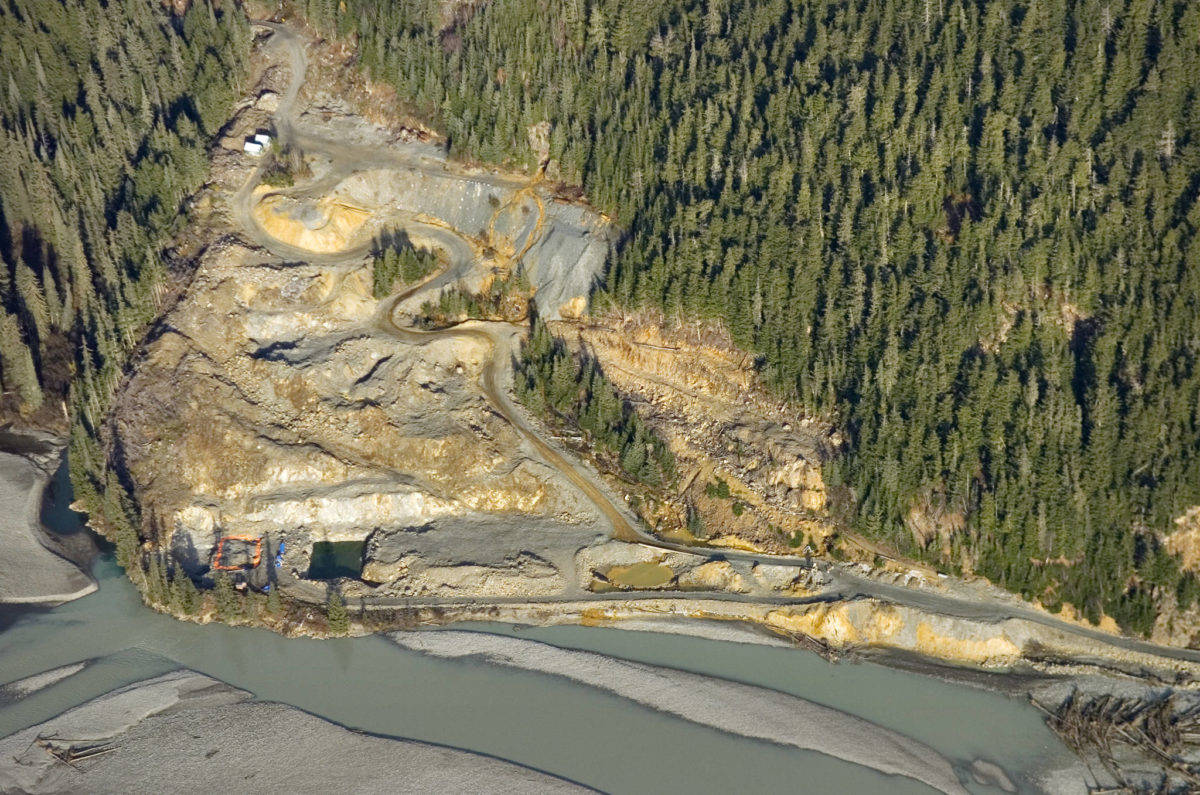The Taku, Stikine and Unuk are world-class transboundary rivers that originate in Northwest British Columbia (B.C.) and flow into Southeast Alaska. These iconic rivers and their watersheds are central to our fishing industry as well as tourism in Southeast. Importantly, they’ve also been centers of culture for thousands of years. It’s imperative for our economy and our people that these waters stay pristine for generations to come.
Virtually all of the U.S. portions of these watersheds have the highest level of U.S. federal protection. But our jurisdiction only goes to the border. On the other side, there are large-scale mining developments near the Canadian headwaters of these rivers. Some of these mines — particularly the defunct Tulsequah Chief Mine — have contributed to the release of hazardous material that could have impacts on our waters in Alaska. And the provincial B.C. government, which has primary authority over its environmental standards, has been moving entirely too slowly to act on the mining pollutants that risk our fisheries.
[Empire Exclusive: Sen. Sullivan talks Roadless Rule, Medicare, Green New Deal]
Recently, as a result of persistent pressure from the Alaska congressional delegation, the State Department and the State of Alaska, concrete action has been taken.
B.C. mining regulators have, at long last, taken the first step toward paying to clean up the Tulsequah Chief Mine that has been leaking acid runoff into Alaska waters for decades. In November, the B.C. Ministry of Energy, Mines and Petroleum Resources issued a request for proposals to remediate Tulsequah Chief and last month announced that they have awarded a contract to remediate the site.
This is good news, but it’s taken far too long to get to this point, something I stressed to Prime Minister Justin Trudeau at an event at the Canadian Embassy earlier this week.
When I first came into office, I was surprised that the Obama administration hadn’t pushed this issue harder with the Canadian government.
That began to change when Sen. Lisa Murkowski, Rep. Don Young and I wrote then-Secretary Rex Tillerson, urging the State Department to prioritize transboundary watersheds. Shortly thereafter, the Departments of State and Interior, and the EPA established an interagency working group to address concerns regarding B.C.’s mining activity in transboundary watersheds and to determine the specific mechanisms necessary to safeguard American economic interests and resources.
Last year, former Lt. Gov. Byron Mallott and I traveled to Ottawa to meet with senior Canadian officials to discuss transboundary mining. Together, we, along with the State Department, showed strong unity in fighting for Alaska’s interests. Specifically, we stressed the need for binding protections, joint water quality monitoring and financial assurances to ensure mine operators in B.C. will be held accountable for any impacts to transboundary water quality that might threaten Alaska. My direct dialogue with Canadian officials continues to this day, including conversations with Trudeau in 2016 and again this week.
[Alaska Native tribes allege human rights violation over Canadian mine pollution]
We’re also working across the aisle with our colleagues to bring congressional resources to bear to help with the issue. Murkowski was able to recently appropriate $1.8 million to the Department of the Interior for stream gauges in transboundary rivers – which will provide better monitoring and water quality data. Further, we directed the U.S. Geological Survey to enter into a formal partnership with local tribes and other agencies to develop a long-term water quality strategy to address contamination risks in transboundary rivers.
Last week, Murkowski and I, along with senators from border states, wrote B.C. Premier John Horgan requesting that his government implement the same environmental standards and accountability for B.C. mining projects that are required in the United States.
It’s frustrating that Canada, a country that consistently advocates against development projects in Alaska — and touts itself as a global environmental leader — would resist responsible environmental actions when it comes to its own projects.
But the progress we’ve seen in the past few years indicates to me that — due to our combined, rigorous efforts — the neglect of these responsibilities by the Canadian government may now be giving way to meaningful engagement and collaboration toward safeguarding our shared waterways.
As Alaska’s senator, I’ll continue to do all I can to push the Canadians into taking actions to protect our waterways, our way of life and our people.
[Opinion: It’s time for Canada to clean up the polluting Tulsequah Chief Mine]
• Dan Sullivan, R-Alaska, is a U.S. Senator. My Turns and Letters to the Editor represent the view of the author, not the view of the Juneau Empire.

